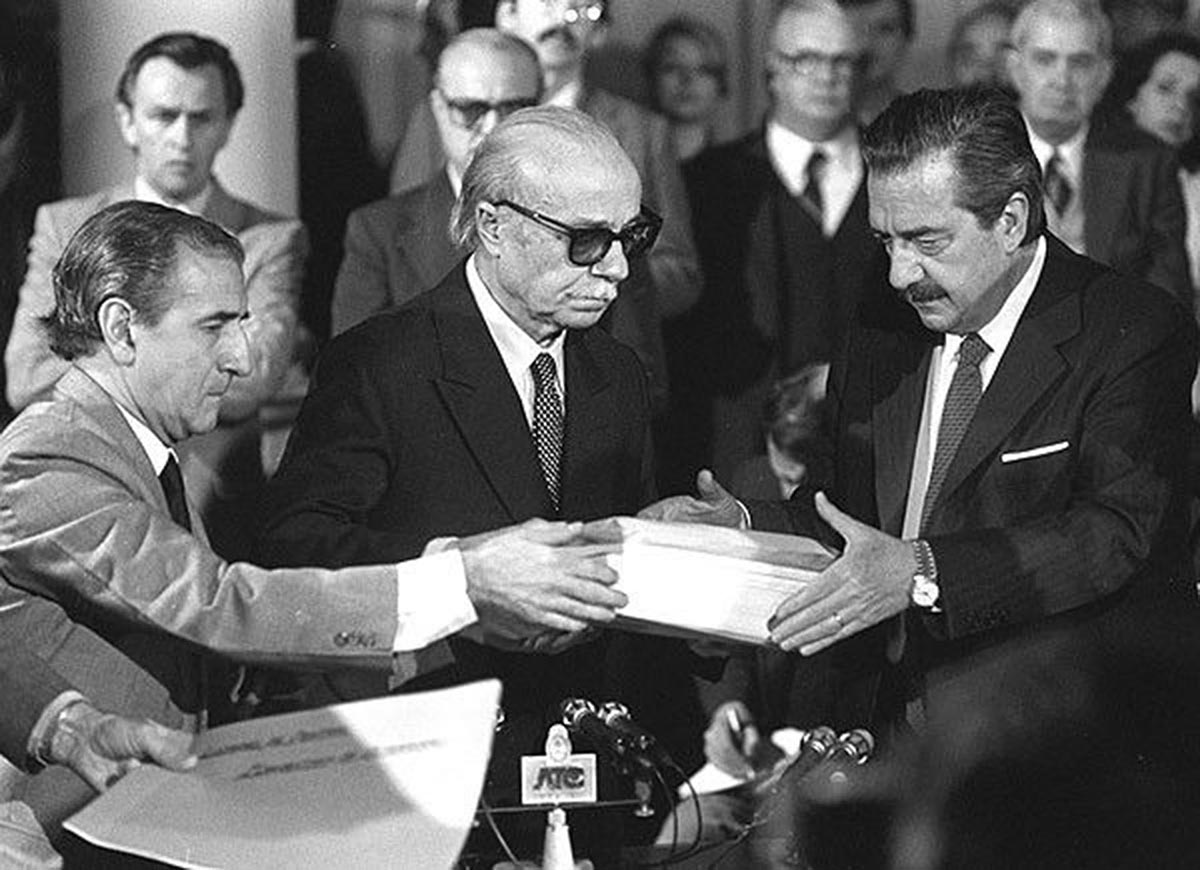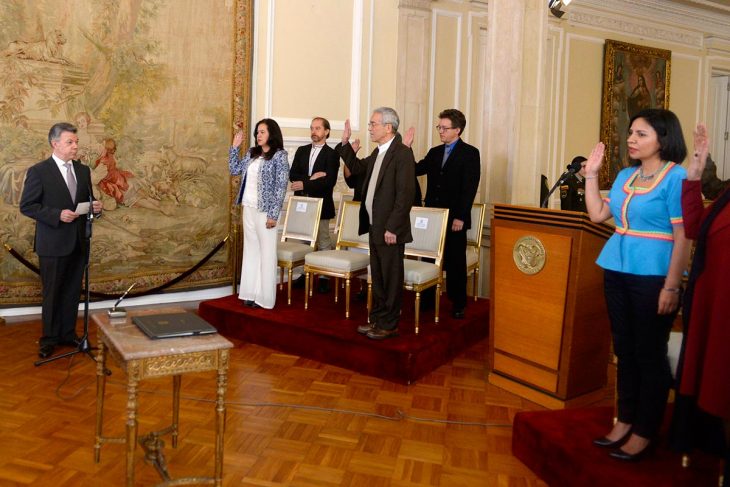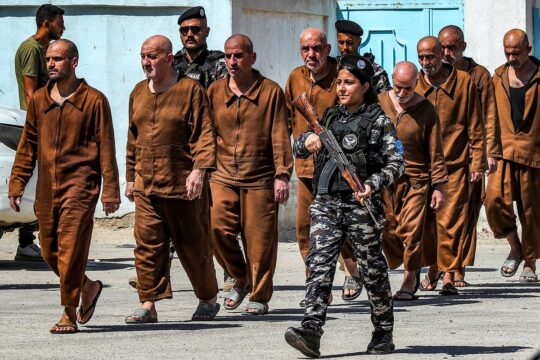With more than 70 truth commissions established worldwide to date, these bodies are proving to be one of the most popular transitional justice mechanisms. While their mandates and objectives have varied widely, the production of a publicly available report documenting the causes, patterns and impacts of past large-scale human rights abuses is considered essential to their impact. The length and structure of reports have also varied, but recommendations based on findings are a key unifying feature.
The Argentine National Commission on the Disappearance of Persons (CONADEP) was a trendsetter in a number of ways. Not only is it the first truth commission on record to publicly release a report, in September 1984, but the single-volume titled Nunca Más prompted important shifts in transitional justice practice. The report, which became an instant bestseller, was used by the Argentine judiciary to support the prosecution of several junta members. Given that they were not strictly speaking part of the mandate of the CONADEP, the four recommendations included in the report were its most important innovation. Focusing primarily on reparations and criminal prosecutions, the commissioners argued that the primary purpose of these recommendations was “to prevent, repair and, finally, to avoid the repetition of the curtailment of human rights in [their] country.”
Thus, recommendations emerged organically from the human rights abuses investigated and were positioned by the commissioners as a bridge between the past and the future. On the one hand, the recommendations sought to respond to the victims’ rights of truth, justice, and reparations. On the other, the commissioners aimed for the recommendations to support social and political transformations to stave off similar violations in the future.

In Latin America, a majority of recommendations acted upon
From this point on, recommendations are considered so important by the creators of truth commissions that these bodies are explicitly tasked with including them in reports. Some countries, notably El Salvador and Liberia, even made their implementation mandatory.
Although the implementation record of recommendations has been generally assumed to be poor, the systematic review carried out by the Beyond Words project on 13 Latin American truth commissions shows that we should be more optimistic about the truth commissions impacts for three reasons. First, even if only partially so, the majority of all recommendations have been acted upon regardless of their type. Second, and perhaps more importantly, three quarters of all recommendations are considered systemic, that is they aim to strengthen institutional and legal frameworks, rather than respond to the harms suffered by victims. Thus, given the higher-than-expected rate of implementation, truth commissions are in a good position to achieve social, political, and political transformations that go beyond producing a narrative about the violent past and are constitutive of guarantees of non-repetitions, along the lines of what the CONADEP envisioned in 1984.
What future for the Colombian CVR report?
By comparison to many countries that adopted similar mechanisms, the Colombian Truth and Reconciliation Commission (TRC, also known as Commission for Clarification of Truth, Coexistence, and Non-Repetition, or CEV) – whose main functions in relation to the armed conflict are truth clarification, recognition of victims and responsibilities, and promotion of peaceful coexistence – finds itself in a unique situation likely to affect its report.
First, the TRC is embedded in a complex four-pronged system of reparations, justice, truth and non-repetition whose remaining mechanisms are going to continue operating well into the 2030s. Thus, while, unlike the case of the CONADEP, testimonies collected by the TRC may not be used for prosecutorial purposes, the final report is likely to provide an important element of context to other ordinary and transitional justice mechanisms.
Second, the TRC came into existence after a number of truth-seeking mechanisms investigated specific conflict-related harms, events and actors. The most important of these bodies, the National Centre for Historic Memory (CNMH), released the first global report on the internal armed conflict in 2013. Relations with the human rights movement and the transitional justice mechanisms of the Peace Agreement have soured in light of the leadership change at the CNMH, raising questions about whether the legacy of the TRC could be advanced by this body as planned. The CNMH is now unlikely to complete the construction of the Museum of Memory, which is supposed to house the TRC report.
Third, the establishment of the TRC did not come at the end of an armed conflict, being part of a piecemeal peace agreement with one specific non-state armed group. While the majority of the Revolutionary Armed Forces of Colombia (FARC) ex-combatants remain committed to the transitional justice project of the Peace Agreement, security problems persist around the country and are likely to affect dissemination of the report, including the implementation of recommendations.
Innovations for recommendations
The Beyond Words project put forward a typology of truth commissions recommendations that is composed of eight categories. The fact that the nearly 1,000 recommendations included in the analysis fall into at least one of these categories allows us to draw solid inferences about what the TRC recommendations might include. Truth commissions’ reports to date have contained recommendations on institutional reform, legal reform, reparations, non-repetition measures, constitutional reform, criminal prosecutions, and follow-up mechanisms. The majority of recommendations analysed fall into the first five categories, and relatively fewer considered constitutional reform and criminal prosecutions.
Since the Colombian TRC began operations in 2018, it added the commitment to lay the groundwork for guarantees of non-repetition as a fourth objective of its work. The recommendations that will be included in the report originate from three sources: reports submitted by victims and human rights organizations, an analysis of reports by previous truth-seeking bodies, findings relating to the armed conflict, and insights collected from participants to the TRC activities.
In Colombia, three innovations will likely be introduced by the TRC with respect to recommendations. First, progress made with respect to the recognition of constitutionally protected vulnerable groups, known locally as differential focus, will impact how recommendations capture the harms and impacts of the armed conflict on ethnic groups, women, members of the LGBTIQ+ community and other socio-economically marginalized individuals and groups. Second, the TRC has considered new types of harms and rights abuses, including environmental damage and reproductive violence. Third, new actors, particularly the business sector, but also non-state armed actors that demobilized in the early 1990s and had not participated in truth-seeking processes of this magnitude, were included in this conversation. The business sector has had a significant participation in Dialogues for Non-Repetition, the predilect methodology for collecting recommendations to be included in the report.
Finally, the TRC rollout of 24 so-called Houses of Truth in areas most affected by the conflict provides the commissioners with the opportunity to consider both the formulation and implementation of the recommendations through a local lens.
Recommendations: a duty of the Colombian state
The extension granted by the Constitutional Court allowed the release of the report of the TRC to avoid the ongoing electoral race.
Nevertheless, as was the case with the implementation of the Peace Agreement, the change in national government and local authorities due in the second semester of 2022 may have serious implications for the implementation of its recommendations. For coordinated and sustained action on implementation to take place, the transitional justice project of the Peace Agreement, of which the TRC is part, has to be taken on as a state duty. This means that all branches of government and both national and local levels should commit themselves to acting on the recommendations as soon as possible after the release of the report. It also means that the recommendations of the TRC have a higher chance of being implemented if and where they overlap with the letter and the spirit of the Peace Agreement.
The extension granted by the Constitutional Court to the TRC also awards it an extra two-month period for report dissemination and outreach. While its statutes recognize the need to establish a Follow-Up Committee responsible for monitoring the implementation of its recommendations, its duration or composition remain unclear. The commissioners are tasked with formulating the mandate and rules of procedure of this body and its design is still unknown. Part of their task is now also to specify the outreach functions in the extension. Based on the case studies included in the Beyond Words project, solid dissemination efforts and strong follow-up committees improve the chances that recommendations will be implemented by providing civil society with the tools to hold authorities to account. It remains to be seen whether this will be the case in Colombia.

Adriana Rudling, who holds a PhD in politics from the University of Sheffield, UK, is a post-doctoral tesearcher at the Chr Michelsen Institute, Bergen, Norway and a post-doctoral visiting fellow at the Instituto Pensar, Bogota, Colombia. Her research interests centre on the interactions between victims of massive and systematic human rights violations and the mechanisms and measures adopted to deal with the violent past.






